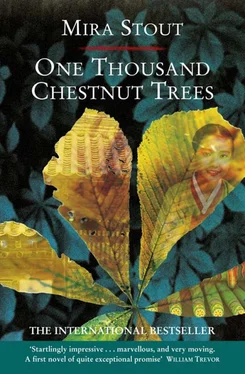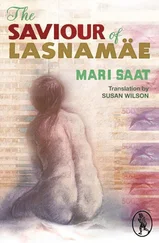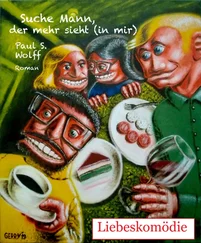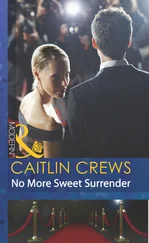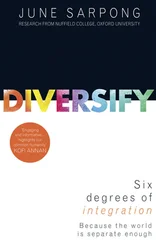Yet inadvertently – and sometimes knowingly – my behaviour hurt her deeply. She had worshipped her own mother, yielding at times I would not even consider, while I was fresh and moody, continuously breaking the code of obedience upon which her very childhood, and generations of Confucian childhoods, had been unquestioningly founded.
But compared to my boarding-school friends, I was fairly virtuous. Like a good Korean child, I was flirtatious but chaste, worked hard at school; competent at sports and the arts, sceptical but conscientious. Got into trouble only once: suspended for smoking a cigarette in the girls’ lavatory. My mother’s rage was frightening: when I got home, she locked me out of the house until dark. To her, I was a barbarian, needing urgent curbing.
Although we got along in a crippled sort of way, with the advent of teenage hormones, communication became untenable. Trivially, I scorned the square clothes she bought me and told her so, while she would upset me by dismissing F. Scott Fitzgerald and Sylvia Plath as a colossal waste of time. She disapproved of my acting in school plays,
‘Vulgar,’ she pronounced.
More distressing, when I tried to confide tremulous worries to my mother, she would respond with an authoritarian maxim or reproval which I would angrily reject, thinking that she didn’t care. Tears were ignored, along with achievements.
‘Mothers are not friends, they are mothers,’ she would say in defence of her sternness. We would make up, and row again. The turmoil was painful for us both. It was like having a diseased tooth; a dormant infection that flared up regularly, only worse. Beneath the irritable surface symptoms lay profound guilt and despair; a sense that I should have prevented it somehow, should have been stronger. It provided the first disturbing and confounding proof that two people could be biologically close, and yet be as strangers. My father and I got on easily, which may have aggravated things. But for all that, I loved my mother fiercely. Although I could not express it to her, I found her strength and principles quite awesome. I longed to please her above anyone else.
Sitting at the dining-room table, acute frustrations between us had relaxed with time.
‘Get a pen,’ my mother instructed gently. Then she got out a battered old address book, and opened it. The writing was mostly in Korean. Thanks to the Linguaphone booklet, I recognised the odd vowel. The pages were yellowed and flaking at the edges. She squinted at the page, and smiled with rare spontaneity. It reminded me of the way she had looked ten years ago, when I spied on her speaking Korean with Hong-do.
‘You must go and see my cousin and his family; he was once my tutor. This is his name and address. And of course, your aunt, Myung-hi, and our eldest brother, your uncle Jin-ho, if he is still alive.’
This last comment chilled me. Didn’t she know if her brother was still alive? Why didn’t she know?
‘It’s complicated. I can’t really say,’ she said. ‘My older brother has not been well, and since my parents’ death, I lost touch with other relatives.’
I was shocked by her refusal to talk about it, or even to think about it. This mention of my other uncle brought a heavy sadness to my mother’s face that I did not understand then, but later would.
She moved on to discussing another relation. I listened, bemused, and grew cautiously excited about these names and places. It was like mapping the first inches of the unknown iceberg of my mother’s past.
Although she was silent, one could sense the importance she attached to bequeathing these family details. After twenty-seven years I was still not wholly ready to receive these names, delivered in her difficult handwriting, in Korean. But somehow, a lazy willingness to try had come, and just outweighed the reluctance.
Between sips of tea my mother mentioned that So-and-so was now president of a hospital in Seoul, and that Such-and-such was a prominent banker, that X was a drunk and a womanizer. Because I had not yet met them, characters became jumbled, and I forgot which of them to avoid and which to pursue. But my appetite to find them began to sharpen.
‘I wish I were going with you,’ said my mother, to my surprise. ‘But I can’t go now. There is too much to do. Another day maybe we can go,’ she said, as if not entirely convinced that she could.
I kissed her good-night. She moved her face away slightly, as usual. Sometimes I had been a bit hurt by this aversion, but my uncle had told me that in Korea, grown-up relations did not express their affection in the casually physical Western manner.
‘Good-night,’ she said, and turned to mount the stairs.
One day towards the end of March, my mother and father drove me to the airport. My journey was to be especially long; I was flying first to London to see an old art professor, on a cheap fare, naturally, and the trip would take a further eighteen hours from London; a punishing London-Paris-Anchorage-Seoul route.
Inwardly, I said goodbye to the pines, and to the long pebbly curve of our drive that was carved by repetition into my bones. The northern sky boiled purple over the roof of the car. The maple trees on the dirt road were in bud, their red-tipped branches forming an untidy ceremonial arch under which we drove until we reached Route 9. I turned and looked back through the mud-splattered rear window. The receding tunnel of maple trees was telescoping smaller and tighter, like a closing lens.
This departure felt different from the rest. How many times had I left home, for many purposes, usually doing so with an ungrateful sense of relief. Like most adolescents, I’d wanted to teethe on a bigger world.
These woods, these fields, were kindly guardians I had outgrown; I had become blind to their possibilities. I had never felt a sense of belonging to this landscape; not like our tractor-driving, dyed-in-the-wool Yankee neighbour, Addison White, and the generations of Whites before him, nor like Judith, the ex-New York sophisticate in the hilltop farmhouse who proudly wore her handwoven shawl, whatever the occasion, the way a grateful immigrant might fly a flag over the front door.
Somehow, this didn’t feel like home. Throughout my life I longed to recognise a picture of home. My heart was an empty frame, waiting. There was nothing wrong with the view out of the dining-room window, but it didn’t fit the frame. It was both too vast and too small. Yet I was grateful to these trees and ditches; for their mute acceptance of their limited role, for being there, unchanged, whenever I came back. I was grateful to the backs of my parents’ heads in the car for the same reason, although I never said so.
A clear purpose began to form as I sat in the car. With the family names as foundation-stones, I might begin to build a sort of makeshift bridge from West to East, between my mother and myself. It was over-optimistic, even a grandiose idea. The bridge would have to be much stronger than both of us to succeed. The help of something far greater was needed; perhaps God, upon whom I depended with shallow irregularity. Despite the unlikelihood of achieving this ambition, a constructive impulse in this direction was a welcome surprise. I felt tentative hope. Then a heavier thought nearly eclipsed it. This journey would take me far away from where I had been before, and deliver me somewhere I might not want to go. It was likely to take a long time. Worst of all, I might have to change.
At Logan Airport my parents and I entered the transatlantic departures terminal. Dad heaved my heavy suitcase onto the luggage belt at the ticket counter, and my mother fussed, telling me as she always did, that I was carrying too much.
‘Don’t take so much next time. You always carry too much. Next time …’
Читать дальше
